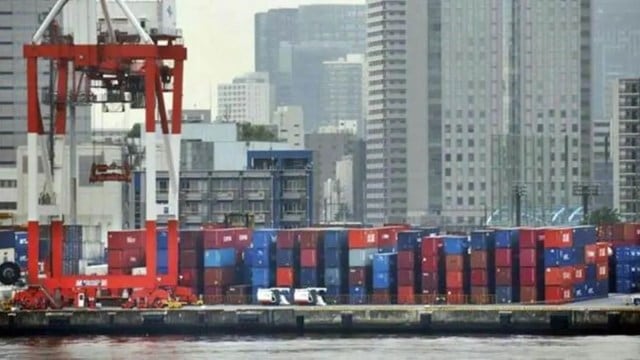 India’s active participation in the WTO discussions is crucial, even for successful bilateral engagement subsequently with major markets.
India’s active participation in the WTO discussions is crucial, even for successful bilateral engagement subsequently with major markets.
India’s resistance to the expansion of the World Trade Organisation’s negotiation agenda, especially in domains such as e-commerce, trade, climate change, and investment facilitation, has consistently ignited fervent debate. The country’s stance is primarily rooted in preserving policy flexibility for its economic development strategies. While this approach suits traditional sectors like agriculture and fisheries, it may hinder seizing new opportunities in emerging fields such as the digital economy and high-tech manufacturing, which are the signature strategies of its Vikas Bharat vision. The vision 2047 seeks to outline a comprehensive roadmap for the country’s development. It envisions India as a technology-driven economy, with an ambitious goal of catapulting into a developed economy within the next 25 years.
The rules of global economic governance are being reshaped in a world moulded by geoeconomics and emerging technologies, resilient global value chains and environmental sustainability. India, as a rising economy, has substantial stakes in this new paradigm. Achieving a new equilibrium of global rules will not be frictionless, yet India’s rising global stature demands that it plays a constructive role and projects its distinct personality in managing differences amidst changing dynamics.
India’s evolving domestic policy reforms are designed to promote its global integration by aiming to foster technology-driven and environmentally sustainable economic growth. The country is a favoured choice for global investors. It secured the third position in attracting FDI in 2022, after the US and China. It aims to boost goods exports to $1 trillion by 2030, positioning itself as a manufacturing powerhouse. Simultaneously, its e-commerce market is set to surge to an astounding $350 billion by 2030. However, the current e-commerce routed exports of $3.0-3.5 billion constitute only 1 per cent of total exports. Globally, e-commerce routed exports are predicted to reach $2 trillion by 2030, offering India a substantial opportunity for export growth.
The desire to seize the opportunity presented by e-commerce has played a pivotal role in driving regulatory reforms in India by promoting digitisation, transparency, and operational efficiency within the business landscape. These initiatives have led to reforms in critical areas such as data protection, consumer rights, competition and taxation, fostering a more conducive ecosystem for e-commerce enterprises to thrive. India’s data protection regulations aim to align with global standards. The country, aiming for a low-carbon, resilient, and equitable transition, has committed to achieving net zero carbon emissions by 2070, and has made significant achievements in improving energy access and reducing greenhouse gas emissions.
In India’s evolving export-led economic growth model, the emphasis laid on maintaining unrestricted right to pursue domestic policies should yield to a pursuit of policy predictability in key destination markets like the US, the European Union, Japan, and other emerging economies, especially in high technology sectors. The country must shed its hesitancy and actively participate in negotiations concerning e-commerce, trade, climate change, and investment facilitation within the WTO.
The historical context that initially shaped this strategy differs significantly from today’s landscape. The policy reforms taken in the wake of the 1991 economic crisis broke down trade barriers, attracted foreign investments, and fuelled economic expansion.
In the present context, India must adeptly manage its growth trajectory, emphasising digitisation, sustainable development, and resilient value chains to bolster its manufacturing sector. Seeking international consensus on rules and disciplines related to emerging economic issues and navigating the evolving geo-economic landscape is in the country’s best interest.
India’s active participation in the WTO discussions is crucial, even for successful bilateral engagement subsequently with major markets. Participation in these discussions will also allow India to build a leadership position in the Global South. The country’s lack of engagement, in any case, has not deterred other interested nations from forging a consensus among major economies regarding new regulations in the realm of disruptive technologies or formulating unilateral carbon border adjustment measures inimical to Indian business interests.
Going forward, it is time India breaks away from its traditionally held defensive positions. Between 2000 and 2007, India’s trade-to-GDP ratio surged from 12 per cent to 23 per cent, stabilising at this level. To achieve the ambitious export targets and accelerate GDP growth, the country aims for a higher trade-to-GDP ratio (ideally 30-35 per cent). India’s forward-looking approach to shaping multilateral disciplines in trade and investment matters has been demonstrated vividly through its active participation in G20 forums and bilateral trade and investment negotiations with economically advanced nations. A similar proactive engagement strategy should also be extended to WTO negotiations. It will be pivotal to achieving its national economic development objectives.
The writer is visiting professor, ICRIER
